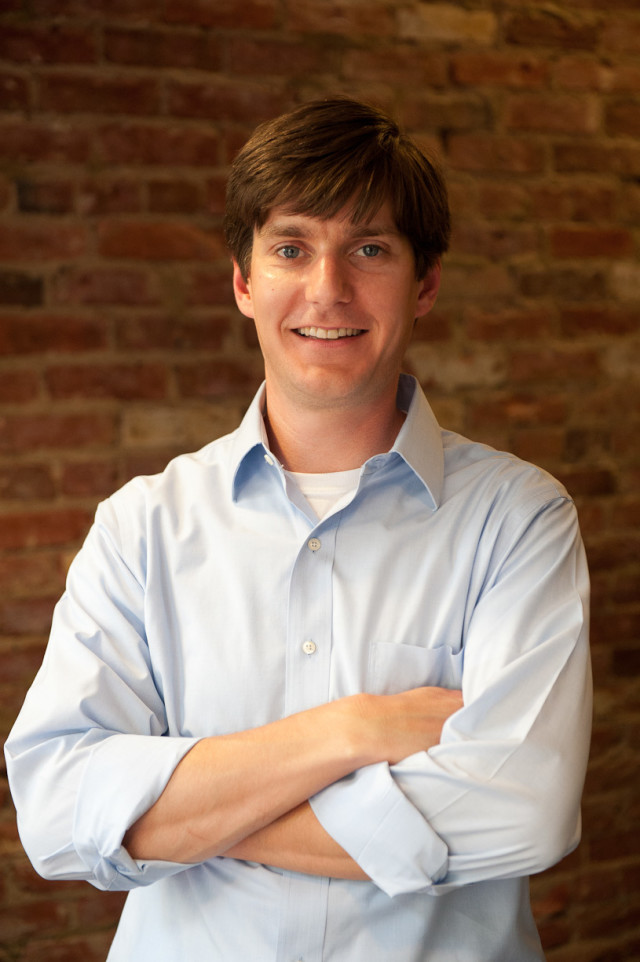Will a Rising Tech Industry Destroy Portland's Soul—or Save It?
At this week’s TechfestNW, two of Portland’s brightest founder/CEOs—Charlie Brown of Context Partners and Elemental Technologies’ Sam Blackman—will deliver a presentation titled “Selling the City, Without Selling Out.” As Portland experiences a boom of tech firms starting, moving, and expanding here, what happens to the city’s distinctive culture—not to mention the price of real estate? Will our city become a soulless branch office of Silicon Valley, or will we “keep it weird”? Portland Monthly talked to Charlie Brown, who moved to Portland from Washington DC in 2010 to launch Context’s “community-centered design” practice, about the themes he and Blackman intend to raise.

What are you worried about? In Portland, at this moment, change is coming whether we like it or not. There’s a large amount of outside capital coming in. You see companies like eBay and Airbnb making major investments here. The cost of living is on the radical rise. We’re at a moment when the tech community can lead the evolution of the city, and has a real opportunity to shape a city that we all want to be in. So what role does the most increasingly influential industry in the city want to play, and what kind of companies and cultures do we want to build here?
The city celebrates every time a major tech firm decides to open an office here. Are you saying we should be concerned, instead? There’s a massive opportunity, obviously. But are we inviting companies here because we want to be a satellite of Silicon Valley, or are they coming here because Portland offers them an opportunity to tap into a cultural asset they can’t get in Silicon Valley? At the same time, many of our homegrown tech companies find themselves under considerable pressure from Silicon Valley venture capitalists to conform to the way business is done there.
On both fronts, we need to decide whether we want this city to continue down its own distinctive creative path. We’ve tended to define the future for ourselves here. You can look at the urban growth boundary, our pedestrian-friendly planning, Forest Park—the city itself has been innovative. You have a strong grassroots ownership of the city: the Nikes, the Wieden & Kennedys, the companies that built the creative class that is a big factor in why tech companies want to be here.
What can the tech community do to preserve that essential Portland-ness? In business, you can overlook culture in favor of product. Especially in creative or tech circiles, there’s a tendency to see “office culture” in terms of ping pong tables and free beer. I like ping pong. I like free beer. But culture is really about how you’re shaping your employees’ experience and how you affect the broader community. Portland, as a city, has a strong culture. We may not be very ethnically and racially diverse compared to other places, but we have a diverse array of creative communities. It’s hard to find a city that’s more entrepreneurial than Portland, and our entrepreneurs are diverse: there’s the painter setting up to sell her stuff at Last Thursday, and there’s Dan Wieden.
A place like Silicon Valley is highly specialized. Portland has taken just about the opposite path. The crossroads we’re at is, are we exporting our own culture, or are we importing culture from somewhere else? And if we’re importing it, where are we importing it from? As more companies move here from elsewhere, how does our culture continue to hold its own?
Good questions, but if I’m running a company, how do I act on them? You may be creating a great product, but are you asking, what’s the purpose? Put the same effort into that question as you put into the product. At Context, we got rid of our conventional HR department in favor of a role that manages our culture and our relationships with the outside community. Your approach to hiring can be important: are you looking for diversity? In tech, it’s natural to say, get more engineers. That might solve your staffing problems in the short term. In the long term, you may lose the intangible qualities of your company that made engineers want to work there in the first place.
What made you want to be here in the first place? When I told people I was leaving Washington DC for Portland, they were aghast. Why would you leave the global power center for a provincial city on the wrong side of the country? But Context’s work is all about community—and Portland is a city all about community. It’s been intentionally designed that way for many years, to be a place where people connect and engage. Context started as three of us in my attic; now there are 20 of us in Portland, DC, and Brussels. I can’t think of a place better suited for growing the company.
Charlie Brown and Sam Blackman speak at TechfestNW Friday, Aug 15.
